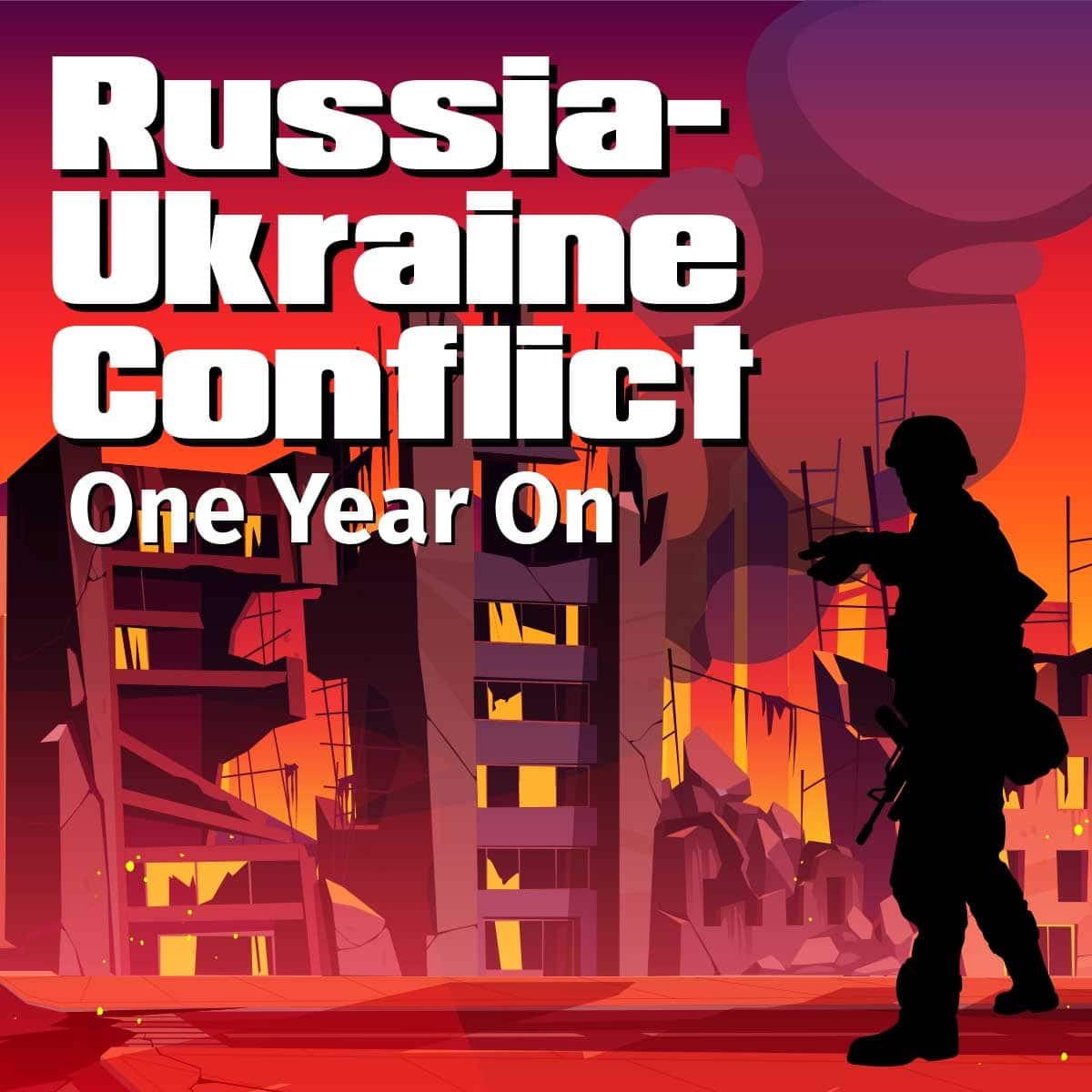The Ukraine-Russia war has taken its social and psychological toll. (Illustration by Suneesh K.)
In over a year since Russia attacked Ukraine in February 2022, the global energy market witnessed high volatility in prices and unprecedented disruptions in supply chains, forcing countries to look towards alternative sources of energy to ensure energy security.
Moreover, with weather patterns across the globe changing, countries across the world are making a stronger commitment to reduce the use of what is described as the “dirtiest fuel” by climate change activists—coal. But the global energy crisis triggered by the Russia-Ukraine conflict resulted in renewed interest in coal in countries from Europe to Asia.
Have we regressed on the global energy transition agenda? Energy experts consider this only a blip; in fact, they believe that this “unprecedented energy crisis” has given a big push to energy transition policies across the world.
“Nuclear power is making a comeback and, as a result, we are seeing that clean energy options are turbocharged around the world as a response to this energy crisis. In the past, clean energy technologies were mainly driven by environmental, climate reasons. But now, the number one driver of clean energy is energy security,” Fatih Birol, executive director of the International Energy Agency, told Moneycontrol in an interview earlier this month.
“People and governments want to build clean energy in order to reduce their reliance on a few countries. So I see where we are today, clean energy is growing very strongly, but the oil and gas markets are still volatile, and 2023 will be a challenging year, especially for energy-importing developing countries,” he said.
In the short term, as energy security becomes vital, countries may turn to fossil fuels but there is an increasing understanding that alternative fuels would be the game changer not just for decarbonisation but for ensuring energy security.

An alternate past
Energy prices had become volatile on fears that Russia, which is among the largest exporters of crude oil to the world, could attack Ukraine. History was written on February 24, 2022, when Russia sent troops into Ukraine, having a ripple effect across the world and triggering an unprecedented global energy crisis.
In the last one year, crude oil prices soared to a 14-year high of $140 per barrel in March 2022 but have now cooled to close to $80 per barrel due to weak demand amid global inflation.
The prices of oil, coal and gas went up by around 40, 130 and 180 percent, respectively, in the first two weeks after the invasion. One year later, experts argue that the energy market disruptions would have stung less if countries have moved faster on energy transition.
A study on ‘Burden of the global energy price crisis on households’ published in Nature Energy, where researchers modelled the direct and indirect impacts of increased energy prices in 116 countries covering 87.4 percent of the global population, noted that war has nearly doubled household energy costs worldwide.
“The energy price increases due to the Russian-Ukraine war would not have had such an extreme impact if better policy decisions had been made before. Take, for example, the quite recent COVID crisis that provided a great opportunity to redirect investments toward the energy transition and loosening the dependence on fossil fuel imports given the huge amounts of money used to kick-start the economy. Yet a large share of the public funds was invested in fossil fuel infrastructure,” the report said.
Policy push
While in the short run the energy crisis drove countries to regress to coal, it simultaneously gave a reality check to governments across the world to put in place more enabling policies to boost energy transition.
“Energy markets and policies have changed as a result of Russia’s invasion of Ukraine, not just for the time being, but for decades to come,” Birol said in the World Energy Outlook 2022 report. “Even with today’s policy settings, the energy world is shifting dramatically before our eyes. Government responses around the world promise to make this a historic and definitive turning point towards a cleaner, more affordable and more secure energy system.”
In June 2022, China announced its new plan for renewable energy development, which among other things targets more than 50 percent of the country's incremental electricity and incremental energy consumption coming from renewables during 2021 to 2025.
In July 2022, South Korea said it will increase the share of renewables in electricity generation to over 20 percent and nuclear power to over 30 percent, and decrease coal‐fired power by 2030 under its New Energy Policy Direction.
In August 2022, US President Joe Biden signed into law the Inflation Reduction Act, which directs new federal spending toward reducing carbon emissions and provides funding for energy and climate programmes.
The EU, Japan and India too have pushed clean energy growth through policy.
Experts believe that while the Russia-Ukraine crisis may have been regressive for the energy markets to some extent in the short term, it has made it clear that energy transition may be crucial for energy security.